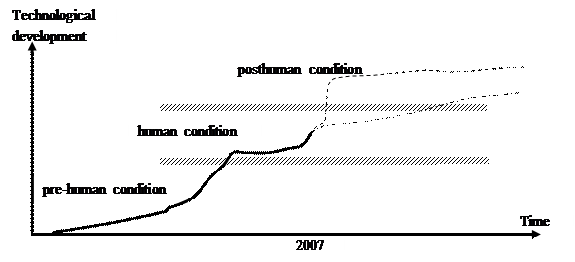“Nor, on the other hand, do you seem to belong to any civilised people“, (Pos. 345) says one of the

Ethics and Aesthetics of the Posthuman Condition – An Open Online Course

“Nor, on the other hand, do you seem to belong to any civilised people“, (Pos. 345) says one of the

In Edward Bulwer-Lytton’s The Coming Race (1871), we are presented our narrator, an unnamed traveller, who, after a descent into

Fiction has always offered us a playfull ground for revisiting our civilization, and also for testing its possibilities, its directions
This novel’s opening was fascinating and yet all too familiar. The story of an explorer finding an advanced race underground

The title “The Coming Race” is a surprisingly paradoxical title. At one point it conveys the narrative’s interest in the

(Bostrom, 2009, p. 20) Edward Bulwer-Lytton The Coming Race (1871), is set in an Utopian underground world discovered by a

It seems that when it comes to techno-apocalypse, the pendulum of the human imagination is swinging further and further to
The protagonist in Edward Bulwer-Lutton’s “The Coming Race” ends up in an utopian parallel univers underneath the surface of the

One of the most posthuman characteristics about the Ana-race, and the one I will focus on in this essay, is

As Laura Søvsø Thomasen points out it in her video lecture, Bulwer-Lytton, Samuel Butler, H.G. Wells and others, were writing